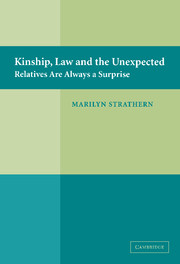Introduction: Divided Origins
Published online by Cambridge University Press: 08 January 2010
Summary
The u. k. human genetics commission's preliminary discussion document (HGC 2000) on the use of personal genetic information singles out children as a category with special interests. Given that ethical procedures in medicine rest crucially on the principles of informed consent and confidentiality, genetic testing poses a particular nexus of problems where children are concerned. Of course, both the question of young persons being incapable of giving consent in their own right and the need for parents to be informed of medical facts about their offspring long pre-date the new genetics. But genetic medicine introduces a particularly challenging set of issues, such as the testing of children for conditions for which they show no symptoms or for conditions that may only be relevant in adult life; the kind of understanding families might have about Mendelian inheritance; the implications of parentage testing and of who owns knowledge about a child's genes. Generally lumped together as posing ethical dilemmas, these add a significant dimension to the status of being a child. Yet, although they are important, it is arguable that they impinge on relatively few people and are in that sense exotic. I take the contrary view and suggest that such dilemmas arise out of and contribute to some very general currents of thinking in contemporary Euro-American societies. We might then say that these general currents simply point to a recent phenomenon, a self-consciousness about living in a society in which communications and the so-called knowledge economy mobilise whole constellations of values that clamour for attention.
- Type
- Chapter
- Information
- Kinship, Law and the UnexpectedRelatives are Always a Surprise, pp. 3 - 14Publisher: Cambridge University PressPrint publication year: 2005
- 1
- Cited by



